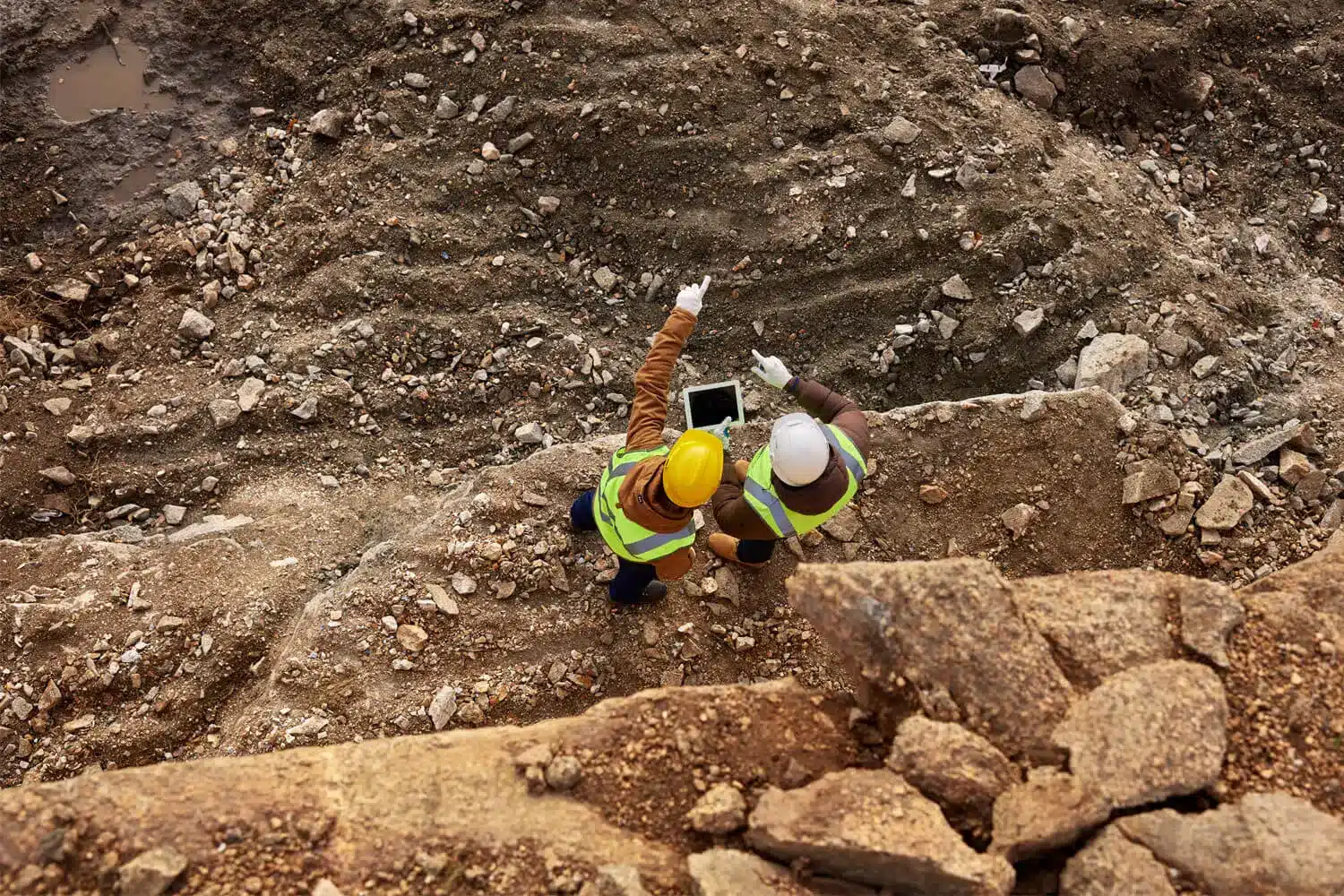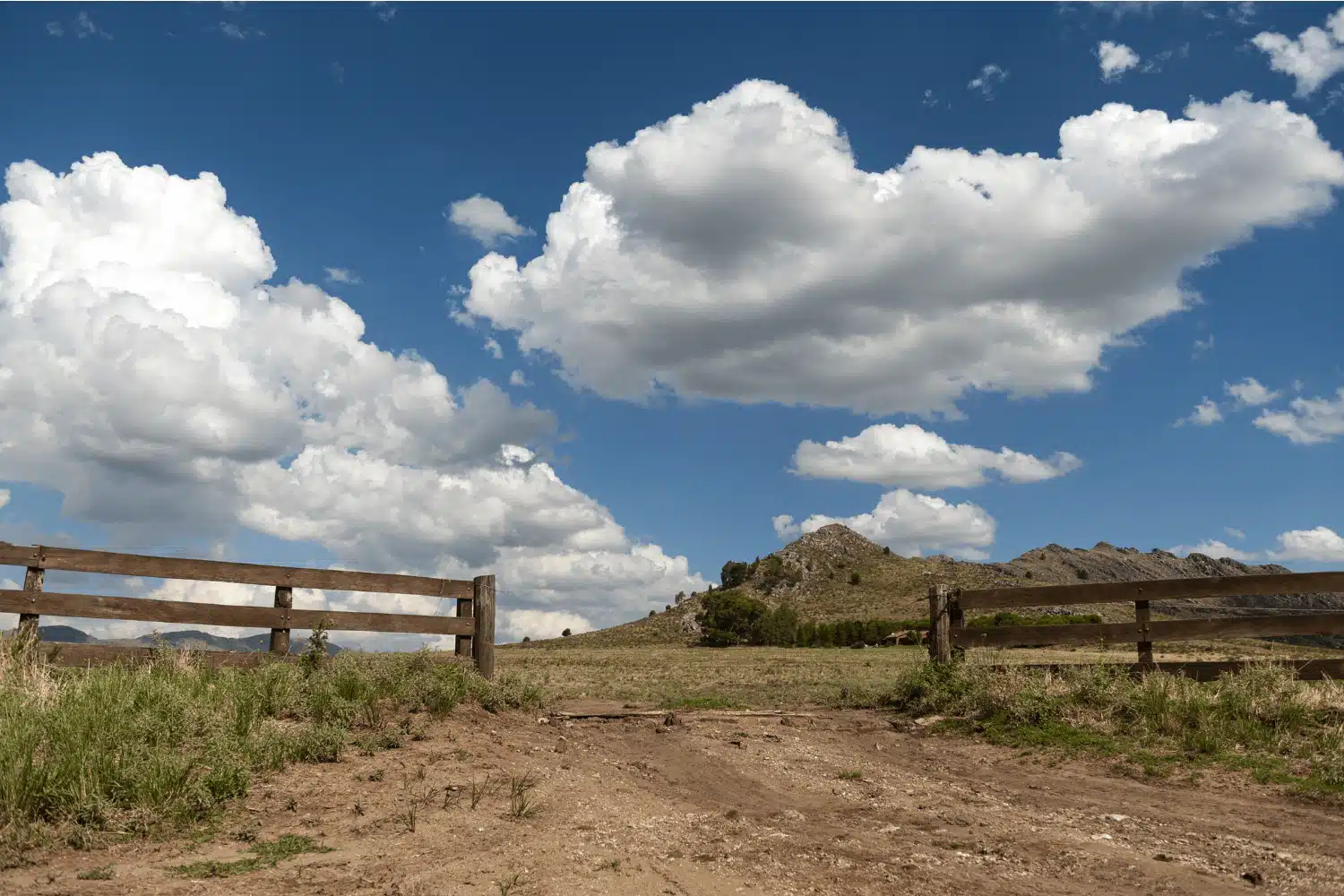Mineral rights are often the unseen gems of land ownership—especially in Texas. While rolling landscapes and sweeping vistas of the Lone Star State are breathtaking, hidden wealth lies beneath the surface in the form of oil, gas, and an array of other valuable resources. This treasure trove nestled underground is the essence of, what we call, mineral rights.
Just as the heart of Texas beats to the rhythm of a wellhead, the pulse of mineral rights intertwines with the state’s rich narrative of oil and gas production. The story started in 1901 with the discovery of the Spindletop well, which gushed wealth and opportunity into the Texan landscape, shaping the state into an influential player in the global energy industry.
The significance of mineral rights goes beyond the borders of oil fields and economic charts—they serve as pivotal characters in the story of each Texan landowner. The ownership, value, and usage of land are intricately woven with the threads of mineral rights. Unraveling this complex tapestry of laws and regulations can seem daunting, but with the right guidance, this intricate network can reveal paths of untapped opportunities.
In this guide, we’ll shed light on the fascinating world of mineral rights in Texas. We’ll dissect their very nature, evaluate their impact on landowners, traverse the legal landscape surrounding them, and share the secrets to unlocking their potential. This guide will serve as a compass for property owners, potential investors, or the inquisitive minds interested in the topography of Texan property ownership.
So, buckle up, and let’s set off on an exciting journey beneath the Texas soil, into the heart of the state’s subterranean riches!
Just as the heart of Texas beats to the rhythm of a wellhead, the pulse of mineral rights intertwines with the state’s rich narrative of oil and gas production. The story started in 1901 with the discovery of the Spindletop well, which gushed wealth and opportunity into the Texan landscape, shaping the state into an influential player in the global energy industry.
The significance of mineral rights goes beyond the borders of oil fields and economic charts—they serve as pivotal characters in the story of each Texan landowner. The ownership, value, and usage of land are intricately woven with the threads of mineral rights. Unraveling this complex tapestry of laws and regulations can seem daunting, but with the right guidance, this intricate network can reveal paths of untapped opportunities.
In this guide, we’ll shed light on the fascinating world of mineral rights in Texas. We’ll dissect their very nature, evaluate their impact on landowners, traverse the legal landscape surrounding them, and share the secrets to unlocking their potential. This guide will serve as a compass for property owners, potential investors, or the inquisitive minds interested in the topography of Texan property ownership.
So, buckle up, and let’s set off on an exciting journey beneath the Texas soil, into the heart of the state’s subterranean riches!

Table of Contents
ToggleThe Basics of Mineral Rights
Mineral rights cover a broad spectrum of substances such as fossil fuels, uranium, salt, and sulfur. A unique aspect of Texas is the severability of mineral rights, which allows them to be bought, sold, or transferred independently of surface rights. This often leads to a ‘split estate’ situation, where ownership of the surface and the minerals below are held by different parties, with the mineral owner having dominant rights.
Impact of Mineral Rights on Land Value and Usage
Owning mineral rights in Texas can have significant implications, potentially providing a stream of royalties from the extraction of these resources. The historical case of Spindletop exemplifies the transformative impact of mineral rights on land value. The mineral rights owners of this previously unremarkable land reaped vast fortunes, demonstrating the potential wealth from effective mineral rights management.
Laws Governing Mineral Rights in Texas
Texas law regarding mineral estate owners has a rich history that dates back to the days of Spanish and Mexican rule. Provisions regarding mineral rights are included in the state’s constitutions of 1869 and 1876. Over time, laws governing these rights have evolved significantly. The constitutional changes in 1866, released all mines and mineral substances to the landowner.
The Current State of Mineral Rights in Texas
About two-thirds of Texas’ 254 counties produce oil, making oil and gas the most economically significant minerals found in the state. However, the state also has abundant reserves of uranium, salt, and sulphur. Ownership of these rights in Texas can vary, resting with private individuals, corporations, or government entities, depending on the land’s historical and legal context.
Best Practices for Managing Mineral Rights in Texas
In Texas, mineral rights can be severed from surface rights, allowing them to be sold and transferred separately. The legal rights of a landowner allow them to separate the minerals present in their property from the surface estates they own. The common practice in Texas is to lease these rights to an operator who undertakes the mineral development, in return for a substantial interest in the minerals. The landowner retains a royalty interest, typically around 1/8 to 1/6 of the value of the extracted resources.
Mineral Estates in Texas
In the realm of land ownership, the distinction between surface estates and mineral estates is crucial, particularly in resource-rich territories like Texas. As intriguing as it may sound, the two can be owned independently, offering a degree of flexibility in managing your property assets.
Surface estate generally refers to the ownership and control over the land surface. It encompasses everything above the ground—houses, buildings, crops, water bodies, and can also include ‘at near’ surface materials unless expressly reserved from the conveyance. As a mineral rights owner, you hold the liberty to use the land as you see fit, within the bounds of local and state regulations.
The mineral estate represents the ownership of the mineral resources beneath that same tract of land in Texas. Owning the mineral estate implies you hold the right to explore, extract, and sell these mineral resources.
The process of severing surface and mineral estates involves a legal conveyance and often a detailed agreement outlining the rights and responsibilities of both parties. This characteristic often results in a ‘split estate’ scenario, where the surface and mineral estate belong to different parties.
The mineral estate represents the ownership of the mineral resources beneath that same tract of land in Texas. Owning the mineral estate implies you hold the right to explore, extract, and sell these mineral resources.
The process of severing surface and mineral estates involves a legal conveyance and often a detailed agreement outlining the rights and responsibilities of both parties. This characteristic often results in a ‘split estate’ scenario, where the surface and mineral estate belong to different parties.

Tips for Property Owners and Potential Investors
Understanding mineral rights can be a complex process, but with correct information and resources, it can be navigated confidently. Determining the ownership of a mineral estate can be started at the local County Clerk’s Office. However, due to the complex nature of mineral rights, seeking professional advice might be necessary.
In terms of valuation, it is critical for property owners to consider factors like the type of mineral, the potential for extraction, and current market prices. It’s recommended to work with a professional specializing in mineral estate valuation to ensure accuracy.
During the negotiation of mineral rights transactions, it is essential to understand the value of your mineral estate and the market conditions. For complex transactions, consider hiring a professional, such as a lawyer or a mineral rights broker, to guide you through the process.
In terms of valuation, it is critical for property owners to consider factors like the type of mineral, the potential for extraction, and current market prices. It’s recommended to work with a professional specializing in mineral estate valuation to ensure accuracy.
During the negotiation of mineral rights transactions, it is essential to understand the value of your mineral estate and the market conditions. For complex transactions, consider hiring a professional, such as a lawyer or a mineral rights broker, to guide you through the process.
Seek Expert Advice
Seek advice from a qualified professional before making a significant decision related to your mineral estate. Legal professionals can provide essential guidance on tax implications, royalty calculations, and negotiating lease terms.
How to Lease Mineral Rights
When you lease a mineral estate, you’re granting a company or an individual the rights to extract and sell the minerals under your land. The leasing process often involves negotiation of various terms such as royalty rate, duration of lease, and provisions for surface damages. The landowner can negotiate terms to align the lease with their interests. It’s beneficial to engage a knowledgeable attorney or broker during this. Once production begins, a division order can also be created to declare the fraction of production each party receives, not amending or replacing the initial lease agreement.

Who Purchases Mineral Rights in Texas
Mineral estates, though often hidden beneath the surface, hold immense value and are of interest to a variety of entities. The complex nature of mineral rights, combined with the potential economic benefits they offer, make them attractive to a diverse group of buyers. Here’s a look at who typically purchases mineral estates and their rights in Texas:
Oil and Gas Companies
As primary players in the energy sector, oil and gas companies are often the biggest buyers of mineral rights. The oil and gas company aims to acquire the rights to explore and extract oil and gas resources, essentially fueling their operations and the global energy supply.
Mining Companies
Similar to oil and gas companies, mining firms purchase mineral rights to access a variety of mineable resources such as metals, coal, or other minerals.
Investment Firms and Private Investors
Investment firms and private investors often purchase mineral rights as part of a diversified investment strategy. They aim to profit from the royalties generated by the extraction and sale of the resources.
Land and Real Estate Companies
Real estate firms or land companies may also be interested in acquiring mineral rights. They often buy these rights as part of larger land acquisitions or as a separate investment. Owning mineral rights can enhance the value of their real estate portfolio and provide a potential income stream from royalties.
Government Entities
On occasion, government entities might also purchase mineral rights. This can be as part of a strategic reserve or resource management initiative, or to control the development and extraction of the resources.
Speculators
Speculators are individuals or groups who buy mineral rights with the hope that the land contains unexplored or undervalued resources. The intent is to sell these rights later at a higher price, once the true value of the resources is recognized.
Final Thoughts on Mineral Rights in Texas
Navigating the world of mineral rights can be challenging, even for the most seasoned landowners and investors. The potential benefits however, from financial rewards to strategic land management, can make this endeavor more than worthwhile. The journey through the layers of laws, ownership complexities, and leasing negotiations requires a trusted guide.
As experts in Texas mineral rights management, Trull Service Company is here to answer all your questions and support you in maximizing the potential of your mineral estate. Our team has the knowledge and experience to handle everything from the valuation of mineral resources to the nitty-gritty of lease negotiations and royalty calculations.
As experts in Texas mineral rights management, Trull Service Company is here to answer all your questions and support you in maximizing the potential of your mineral estate. Our team has the knowledge and experience to handle everything from the valuation of mineral resources to the nitty-gritty of lease negotiations and royalty calculations.
Contact Trull Service Company
Don’t let the intricacies of mineral rights management overwhelm you! Reach out to Trull Service Company today. We’re more than ready to assist you in unearthing the true value of your underground resources. After all, your Texas land holds more than meets the eye – let us help you discover it. Contact Trull Service Company today for a consultation on mineral estate management in Texas.











